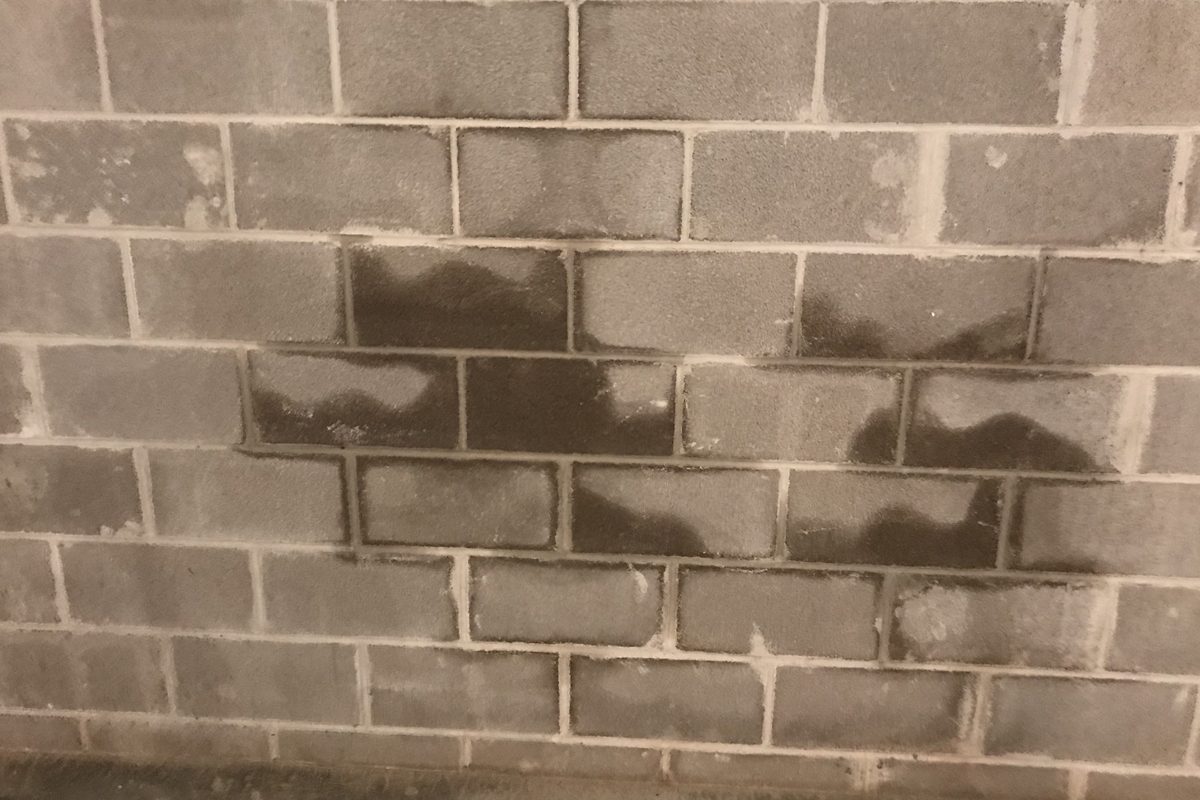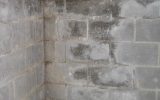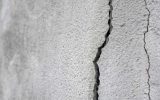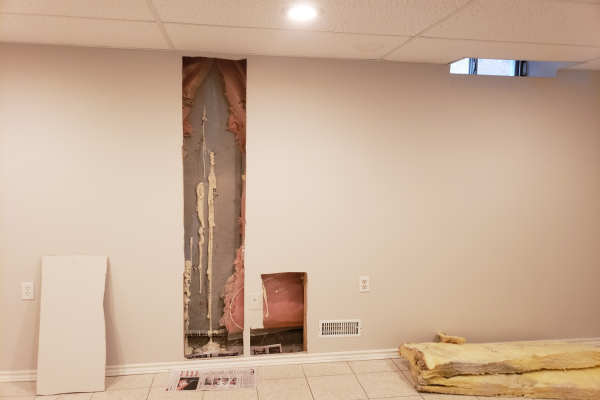Over the years I have been asked hundreds of times: “what is the best time of the year to waterproof my basement?” Obviously alot of people are under the impression that weather is a factor to consider when planning basement waterproofing work – they are right. If you are planning on getting waterproofing done in the foreseeable future, read on.
Article Contents:
The effect of weather on basement waterproofing
How rain impacts waterproofing activities
The impact of rain on crack injection repairs
How rain affects traditional excavation and waterproofing
The effect of winter weather on basement waterproofing
How cold weather affects crack injections
How cold weather affects traditional excavation and waterproofing work
The effect of weather on basement waterproofing
Weather is certainly an important consideration when it comes to planning and executing waterproofing repairs; fortunately, regardless of weather conditions, there is always at least one way to fix a basement leak.
The available repair methods are certainly dictated by weather conditions; for example, an actively leaking crack in your basement can be fixed by some repair methods but not others, and excavating foundation walls during the winter comes with significant limitations.
The following two weather conditions have the greatest effect on exterior waterproofing repairs:
- Rain; and
- Cold winter weather.
How rain impacts waterproofing activities
Unlike cold weather, rainfall can adversely impact both indoor and outdoor basement leak repair work.
The impact of rain on crack injection repairs
The high pressure polyurethane crack injection is entirely unaffected by rain in that it doesn’t matter if the crack is actively leaking or not; epoxy crack injections are another matter.
The epoxy crack injection is not a viable repair method when cracks are actively leaking because epoxy resin does not adhere to wet surfaces. Since the application of an epoxy paste over a foundation crack is an integral part of most epoxy crack injection systems, injecting an actively leaking or wet wall surface using epoxy is risky in terms of the reliability of the repair.
How rain affects traditional excavation and waterproofing
Excavating a foundation when it is raining, or if the soil is still quite wet, is always a mistake for several reasons:
- Wet clay is almost impossible to work in as it is like working in quick sand; as a result, work is very inefficient;
- Sandy soils subjected to rain during or after excavation is particularly vulnerable to cave-ins;
- Rain causes cave-ins of clay soils (especially heavy rains); this represents a significant danger to workers within the excavated area;
- Foundation coatings adhere very poorly, if at all, to wet foundation walls (this is the case for both water and solvent based coatings); and
- The work site is always a huge mess when waterproofing activities involve wet soils.
The effect of winter weather on foundation waterproofing
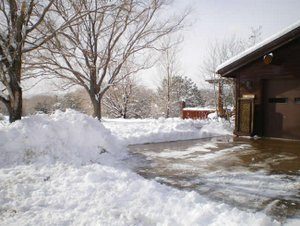
Basement waterproofing can be performed from inside the home or on the outside. Obviously, winter weather doesn’t affect the waterproofing methods performed indoors; even crack injections.
How cold weather affects crack injections
What we have found is that winter weather is the preferred time to do polyurethane injection work, particularly in underground parking garages which become very cold, because the concrete shrinks the most during the winter, thus opening gaps to their maximum width. When the gaps are filled at this width, concerns about the ability of polyurethane resins to stretch are inconsequential. During the winter, cured polyurethane remains flexible; however, cold fluid polyurethane resin is thicker (more viscous) during winter months and takes longer to fully cure.
Epoxy crack injection is also feasible during winter months. Cold weather affects the viscosity of epoxy resin as it does for polyurethane. Epoxy resin fully cures at 77° F in 3-5 hours; during the winter the cure time is longer.
How cold weather affects traditional excavation and waterproofing work
It is our opinion that foundation excavation and exterior waterproofing in the winter should be avoided unless absolutely necessary, here’s why:
- Coating a foundation during the winter must be done with a solvent based product. (While this is not a problem, it is critically important to avoid water based coatings – homeowners take note!);
- Solvent based coatings typically require 48 hours to cure fully; consequently, your foundation is exposed to freezing temperatures for several days during which the foundation could heave from frost and become very damaged as a result;
- Solvent based foundation coatings smell awful and will smell in your house for at least a week;
- Freezing temperatures make waterproofing more difficult and consequently, the likelihood of taking shortcuts is increased; and
- Freeze and thaw cycles increase the likelihood of cave-ins which are extremely dangerous under these conditions and necessitate additional excavation which may not even be possible given the space available to pile soil and work along the excavation.
Check out this link for waterproofer tips on finishing a basement.

